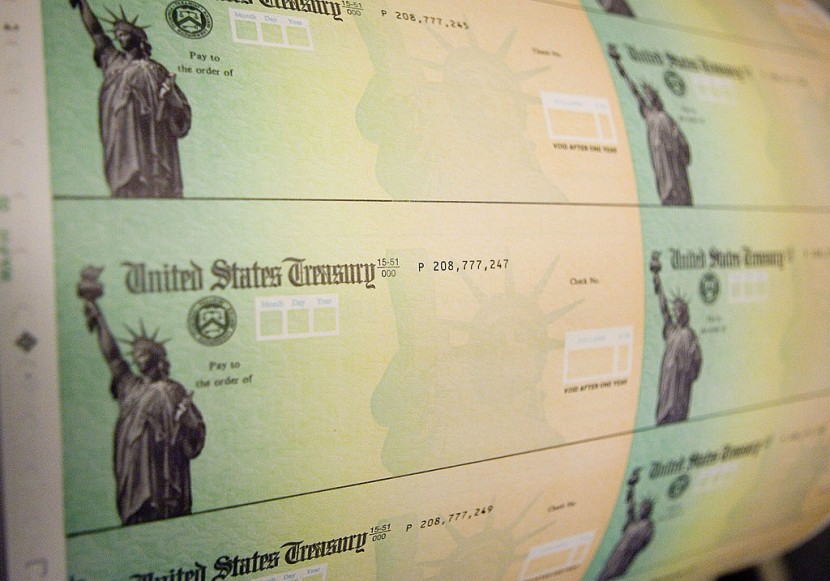
If you've gotten both rounds of the child tax credit payments so far, you may be anxious about owing money on your taxes next year. Each child may be eligible for up to $3,600 in total, with the first half of the credit being paid out in monthly installments until December.
This year's monthly payment amounts are based on your 2019 or 2020 tax return, according to the IRS. There's a lot that may occur between tax seasons, such as an increase in income or a child moving out of an income tax bracket. This might result in an "overpayment," which means you'll owe money to the IRS when your 2021 return is adjusted.
Will my 2022 taxes be affected by the Child Tax Credit?
Per CNET via MSN, one method to avoid this is to keep your household information up to date online. You should be able to do so later this month through a webpage dedicated to the child tax credit.
The simple answer is no, but you'll still need financial information. According to Mark Jaeger, vice president of tax operations at TaxAct, child tax credit stimulus checks do not constitute income, therefore you won't have to pay income tax on the payments. "That means you're just getting the payments sooner rather than waiting to get that money when you file," the IRS said of these stimulus checks ahead of the 2021 tax season.
While you will not be required to pay taxes on the payments you get this year in 2022, you may be required to refund the IRS a portion of the advance payment when you submit your income tax return in 2022.
Unless you opt-out or unenroll from the monthly child tax credit payments, the IRS will automatically send you half of your projected amount this year. If you opt-out of monthly payments, you will get your money when you file your tax return in 2022, rather than in smaller installments.
The enlarged program was created to help low-income families earn more money, and early evidence suggests that it has helped to reduce child poverty in the United States. The increased Child Tax Credit was created to give further assistance to American families as they deal with the economic effects of the pandemic.
The enhanced program is now only funded for one year, but there are hopes that it will be extended, as per AS.com. Early indications show it is having a beneficial impact on American society, and it has been connected to an increase in household income in July, the first month the payments were issued.
Personal income grew by 1.1 percent ($225.9 billion) in July, according to the Department of Commerce's Bureau of Economic Advisors. Personal consumption expenditures climbed by 0.3 percent ($42.2 billion) while disposable personal income increased by 1.1 percent ($198 billion).
One of the primary worries with the new Child Tax Credit was how to deliver the money to low-income families whose information might not be on file with the IRS. Last month, however, the IRS verified that it had been able to provide the funds to the parents of nearly 61 million children.
The Treasury Department and the White House have launched a new online gateway to make it easier for people to sign up for assistance. GetCTC, a new resource that went live earlier this week and is compatible with mobile phones, is accessible in both English and Spanish.
How to opt-out, update Child Tax Credit?
You may now opt-out of receiving this year's monthly child tax credit payments using the Child Tax Credit Update Portal. That implies that instead of earning $300 each month for your 4-year-old, you may wait until 2022 to collect the remaining $3,600 by filing a 2021 tax return. You may opt-out at any time, but you must do so at least three days before the first Thursday of the month you're opting out from. Unenrolling or opting out is a one-time decision, according to the IRS, and you won't be able to opt back in until later this month. The next opt-out deadline is Oct. 4 at 9 p.m. PT, midnight ET.
You can opt-out of the advance monthly payment program if your circumstances are likely to change or if the half monthly payments will conflict with your tax preparation. Families that normally owe the IRS money when they file their taxes may want to take advantage of the full credit next year. If your family is saving for a major purchase, you may choose a higher payment.
To unenroll, go to the Child Tax Credit Update Portal and select Manage Advance Payments from the drop-down menu. After that, you'll need to login in using your IRS username or ID.me account. If you don't have one, you can make one on the page.
If you're qualified, you'll get an opportunity to opt-out of the payments when you sign in. According to the IRS, if you filed jointly on your most recent tax return, unenrolling would only affect your advance payments, not your spouse's. As a result, both parents must opt-out individually.
Related Article : Child Tax Credit: Immigrants To Receive $300 Monthly Stimulus Checks For The First Time; Here's a Tool to Help Families to Sign Up
@YouTube
© 2026 HNGN, All rights reserved. Do not reproduce without permission.








